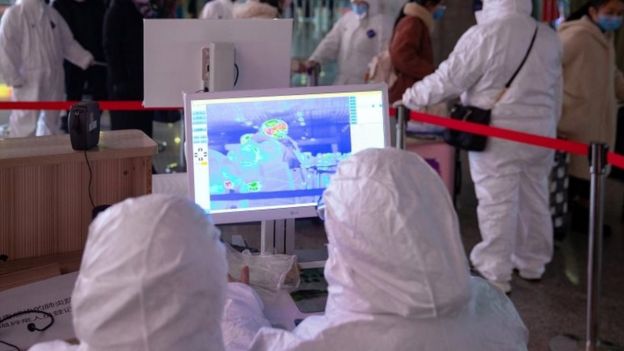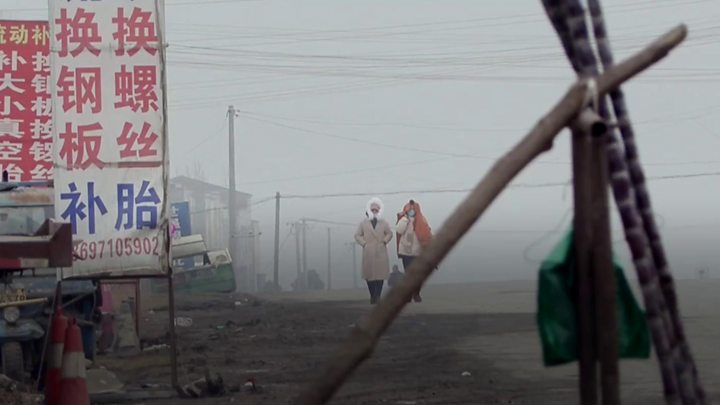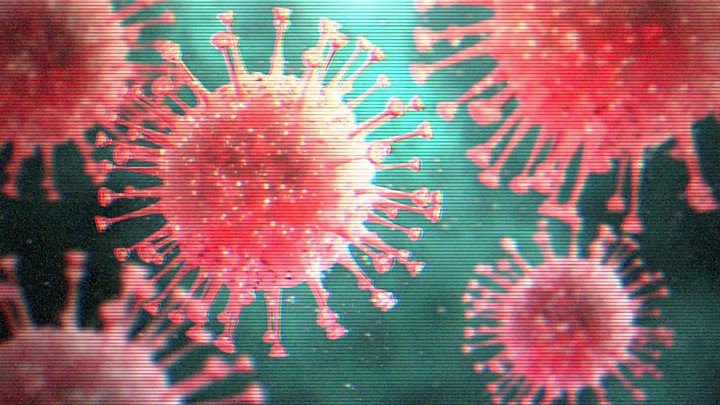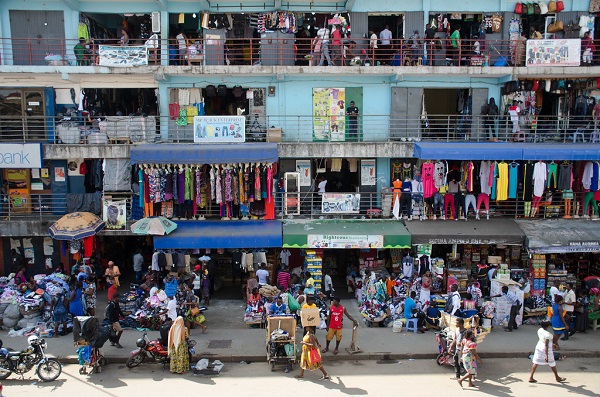The death toll from the new coronavirus now stands at 106, as cases of new infections have almost doubled in a day, Chinese authorities said.
The number of total confirmed cases in China rose to 4,515 as of 27 January, up from 2,835 a day earlier.
Travel restrictions have been tightened and wearing masks in public is now mandatory in some cities.
The city of Wuhan is at the epicentre of the outbreak but it has spread across China and internationally.
READ ALSO: Ghanaian importers wary of price hikes in Chinese goods due to outbreak coronavirus
Wuhan, and the Hubei province it is located in, are already effectively in a lockdown with transport restrictions in and out of the area.
On Monday, authorities in Beijing confirmed a 50-year-old man had died - the first fatality in the Chinese capital from the virus.
The coronavirus causes severe acute respiratory infection and there is no specific cure or vaccine.
Most of the deaths have been in Hubei province with the victims being elderly people or those with pre-existing respiratory problems.
A total of 60 people had been discharged from hospital after recovery, according to Chinese state media.
What steps is China taking?
The outbreak of the virus comes during the Lunar New Year celebration which usually sees millions travel across the country to visit relatives and friends.

To try and stop the spread of infections, many of the new year festivities have been suspended and the holiday period has been extended by three days to Sunday.
In the last 24 hours:
- Beijing and Shanghai have introduced a 14-day observation period for people arriving from Hubei
- Authorities have postponed the new semester for schools and universities nationwide, without giving a resumption date
- China Railway Group said would suspends hundreds of train lines throughout the country
- The immigration administration has encouraged citizens to reconsider the timing of overseas travel to reduce cross-border movement.

In Wuhan, travel from the city of 11 million people has been severely restricted and non-essential vehicles have been banned from the roads.
The city's mayor though said about five million people had already left the city ahead of the holidays and before the lockdown.
Several major cities have suspended public transport systems, taxis and ride-hailing services.
The Disneyland attraction parks in Shanghai and Hong Kong have both been closed.
How is the virus spreading?
The new coronavirus is thought to have emerged from illegally traded wildlife at a seafood market in Wuhan and can now spread between people.
Chinese authorities over the weekend said the virus was - like a normal flu - able to spread during its incubation period and before any symptoms appeared.
This would set it apart from cases like Sars and Ebola and make it much harder to contain.
The World Health Organization (WHO) though said on Monday it remained unclear whether the virus was contagious before symptoms appear.

What is the situation internationally?
The United States, which has also had several infected cases, has urged its nationals to "reconsider travel" to China and is advising against travel to Hubei.
The country plans to fly consular staff and US citizens out of Wuhan in the coming days.
Many other countries have also warned against any non-essential travel to China while some are planning to help their citizens in Wuhan out of the country.
The Philippines on Tuesday announced they would stop issuing visas on arrival for Chinese travellers.

According to the World Health Organization and national authorities, there have been at least 47 confirmed cases outside China.
The latest case to be confirmed is in the German state of Bavaria, only the fourth so far in Europe.
- Eight cases:Â Thailand
- Five:Â USA, Australia, Singapore, Taiwan
- Four:Â Malaysia, South Korea, Japan
- Three:Â France
- Two:Â Vietnam
- One:Â Nepal, Canada, Cambodia, Sri Lanka, Germany, Cambodia
So far, there have been no deaths outside China.
What is the new coronavirus?
The virus causes severe acute respiratory infection and symptoms seem to start with a fever, followed by a dry cough. After a week, some people can experience shortness of breath and need hospital treatment.
The virus itself is a new, or "novel" coronavirus - a family that normally affects animals.
The effect of the coronavirus family on humans has long been observed mainly in the form of the common cold. In recent decades though, more serious coronaviruses - like Sars or Mers - have proven potentially deadly to humans.
Yet even in the cases of severe viruses most people infected were likely to fully recover just like they would from a normal flu.
On Tuesday, an expert at China's National Health Commission (NHC) said one week was sufficient for a recovery from mild coronavirus symptoms.
READ ALSO:Â China virus 'spreads before symptoms show'
According to local media, the NHC also said the virus could infect children, but that their symptoms would be relatively mild.
Source: BBC





